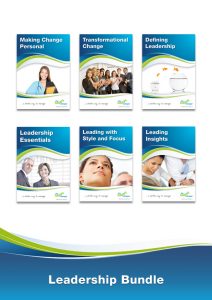7 Reasons Why Leaders Are Made, Not Born
19 November 2025
7 Reasons Why Leaders Are Made, Not Born
The business world has been revolving around the adage that leaders are born, not made, for generations. It all started with 19th-century thinkers like Thomas Carlyle, who coined the idea in the Great Man Theory, suggesting that truly exceptional individuals could shape the course of history just by being natural-born leaders.
It’s an idea that’s appealing and easy to believe. But no matter how convincing it might sound, it is also not entirely accurate or even suitable for the business world. Workplaces today are too complicated and fast-paced to rely on natural qualities only.
Real leadership is built over time, rather than being handed on a plate at birth. It is developed through tough times, mistakes, lessons, and feedback. While some individuals may have a temperament that is better suited to leadership roles, temperament does not equate to ability and know-how. Leaders have to grow into their roles and learn from their experiences to fully develop the ability to lead others to the right destination.
Still unconvinced? Here are 7 reasons why leaders are made rather than born.
#1. Not Everyone Fits the Job
One of the strongest arguments against the idea of natural-born leader is that leadership requires a broad combination of skills that are refined through experience.
Some inane qualities may already be present, but they still require developing, such as critical thinking, emotional regulation, strategic planning, ethical judgement, and the ability to motivate others.
In professional settings, organisations rarely rely on instincts when assessing whether someone is ready to lead. Instead, they use structured evaluation methods to determine competence and readiness. Tools such as employment screening services help identify whether an individual has the experience, behavioural strengths, and decision-making skills needed.
#2. Leaders Face High Pressure
Leadership is not an escape from the challenges of everyday grind. In many cases, it intensifies them. While employees often feel stressed by deadlines or workload, leaders face a lot more stress factors. These pressures demand resilience that can only be built through experience.
Workplace stress statistics show just how significant resilience is. Over half of the UK employees describe their job as a cause of excessive stress, and stress levels are consistently higher among managerial positions.
Managers face unique challenges that have consequences on the livelihood of individuals. You need skills forged through repeated exposure to hit the right balance.
#3. Leaders Are Communicators
Effective leadership depends on communication. A leader must be able to articulate it clearly, consistently, and confidently to very different audiences. This is not an innate gift but a skill that develops over years of practice, reflection, and adjustment.
Leaders need to communicate with their teams in a way that builds trust. They must be able to influence partners and suppliers. They also need to report to senior stakeholders with precision and strategic awareness. Each group requires a different approach, and the best leaders learn to switch styles fluidly
Miscommunication is one of the most common causes of workplace frustration. That’s why improving a leader’s communication skills is central to leadership development.
#4. Leaders Need a Network
Leadership is not a solo activity; it relies on collaboration, influence, and support from others. Even the most confident or charismatic individual cannot lead effectively without the relationships that allow them to coordinate efforts across different parts of a business.
These networks do not appear overnight. They are built gradually through years of showing reliability, delivering results, and building trust. Strong leaders become credible because people have seen what they can do, not because of any innate quality.
Every connection represents time invested, conversations held, and challenges resolved.
A well-developed network also gives leaders a wider perspective. It exposes them to new industries, approaches, and new ideas.
#5. The Best Leaders Are Empathic
Empathy is often cited as one of the most important qualities in effective leadership. Leaders must understand the people they work with, recognise what motivates them, and respond appropriately when individuals face challenges. But empathy, in a professional sense, is a skill that deepens with experience.
True workplace empathy comes from years of encountering different personalities, navigating conflict, listening to concerns, and learning how people react under pressure. Leaders become more empathic as they broaden their perspective:
- meeting new colleagues,
- managing diverse teams,
- facing difficult situations,
- reflecting on their own mistakes.
Each experience teaches emotional lessons that no one is simply born knowing. Empathic leaders tend to make better decisions because they consider the human impact alongside the organisational one. But this is something that is only possible when you have been exposed to the human side of the organisation for long enough.
You can’t come from the top with an understanding of the challenges faced by the people underneath you. That level of organisational empathy is built from experience only.
#6. Leaders Have Responsibilities
Leadership is defined far more by responsibility than by prestige. Leaders are accountable for the well-being and performance of others.
Responsibility is a learned capacity. It grows through taking on small tasks, demonstrating reliability, handling the consequences of decisions, and gradually building trust.
Leaders become accountable because they have shown, over time, that they can be trusted to manage risks, treat people fairly, and uphold the values of the organisation. None of this arrives fully formed at birth.
Leadership involves tough choices, ethical considerations, and moments where the outcome affects people’s livelihoods. In this way, responsibility itself demonstrates why leaders are made.
#7. Charisma As The Result of Experience
Leadership presence is often associated with natural charm and easy confidence. Yet real charisma, the kind that inspires and motivates, tends to come from experience.
Charisma grows when people see competence in action. It develops as a result of making food decisions, communicating effectively, and managing setbacks calmly. Over time, this attitude can build credibility, which shapes the leader’s charisma.
On the other hand, natural charisma may fade quickly when faced with a challenging situation. Self-confidence can crumble when there is no substantial response to business issues. In this sense, someone who has already been through tough times is more like to be charismatic in the long term, as a result of their learned confidence.
Final thoughts
Are leaders born or made? Opinions do differ, but for the sake of your business viability, you want a leader who doesn’t have to prove themselves anymore. There’s no way around that. You want a leader who can show evidence of their experience and results. You don’t want birth-given, you want proven leadership.
Header image by Amore Seymour from Pixabay
References
-
Marshall Goldsmith — One Thing Great Leaders Never Do (practitioner perspective on leadership development and behaviour change)
https://www.marshallgoldsmith.com/post/one-thing-great-leaders-never-do -
Kendra Cherry — Great Man Theory of Leadership: Definition and Examples (history and critique of the “born leader” idea)
https://www.verywellmind.com/the-great-man-theory-of-leadership-2795311 -
Colin Baker — Are Leaders Born or Made? (practical article summarising research and arguments that leadership skills are learned)
https://leaders.com/articles/leadership/are-leaders-born-or-made/ -
Daniel Goleman — What Makes a Leader? (Harvard Business Review; emotional intelligence as a learnable set of leadership capabilities)
https://hbr.org/2004/01/what-makes-a-leader
Leadership Resources

We’ve bundled together these five e-guides at half the normal price! Read the guides in this order, and use the tools in each, and you’ll be well on your way to achieving your personal development plan. (6 guides, 167 pages, 27 tools and 22 insights, for half price!)
- Leadership Essentials
- Defining Leadership
- Leading Insights
- Leading with Style and Focus
- Transformational Change
- Making Change Personal
>> Return to the Leadership Knowledge Hub


